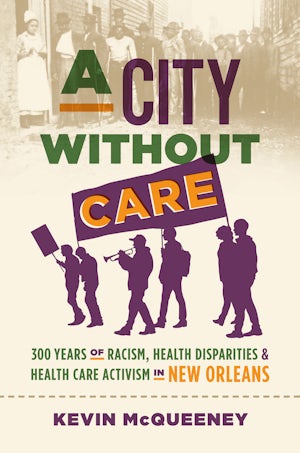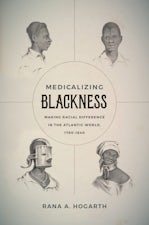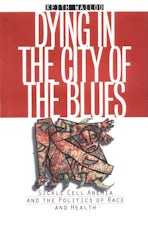A City without Care
300 Years of Racism, Health Disparities, and Health Care Activism in New Orleans
By Kevin McQueeney
286 pp., 6.125 x 9.25, 5 halftones, 2 maps, 3 tables, appends., notes, bibl., index
-
Paperback ISBN: 978-1-4696-7392-9
Published: May 2023 -
Hardcover ISBN: 978-1-4696-7391-2
Published: May 2023 -
E-book EPUB ISBN: 978-1-4696-7393-6
Published: March 2023 -
E-book PDF ISBN: 979-8-8908-6292-1
Published: March 2023
Studies in Social Medicine
Buy this Book
- Paperback $29.95
- Hardcover $99.00
- E-Book $22.99
For Professors:
Free E-Exam Copies
In addition to charting this history of neglect, McQueeney also suggests pathways to fix the deeply entrenched inequities, taking inspiration from the "long civil rights" framework and reconstructing the fight for improved health and access to care that started long before the boycotts, sit-ins, and marches of the 1950s and 1960s. In telling the history of how New Orleans has treated its Black citizens in its hospitals, McQueeney uncovers the broader story of how urban centers across the country have ignored Black Americans and their health needs for the entire history of the nation.
About the Author
Kevin McQueeney is assistant professor of history at Nicholls State University.
For more information about Kevin McQueeney, visit
the
Author
Page.
Reviews
"McQueeney deftly analyzes the way medical and state officials stitched medical segregation back together, often in the face of direct and organized Black protest. An important and timely history."—John McKiernan-Gonzalez, Texas State University
"This engrossing archival work sheds light on the all-too-common problem of public officials reinventing medical systems to shut out African Americans and other vulnerable people. Using health care in New Orleans as a template, McQueeney demonstrates that health care is a key site for the making and remaking of racial segregation and urban geography."—Urmi Engineer Willoughby, Pitzer College



